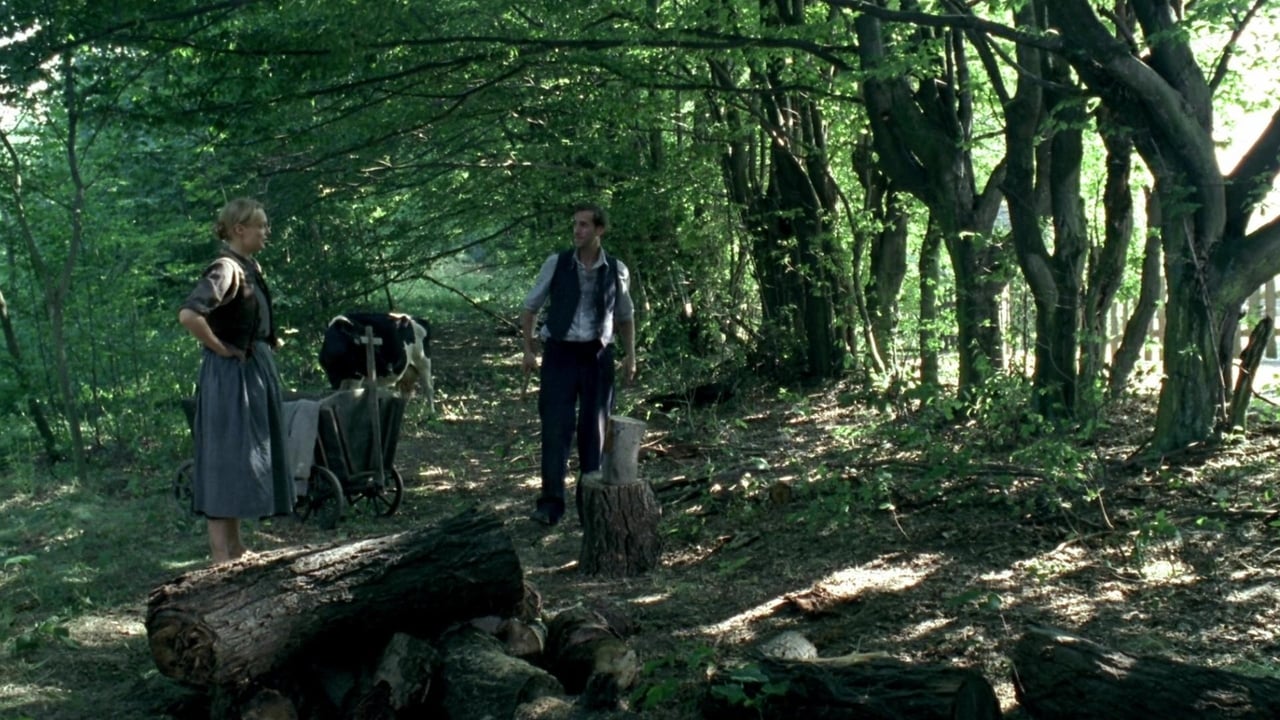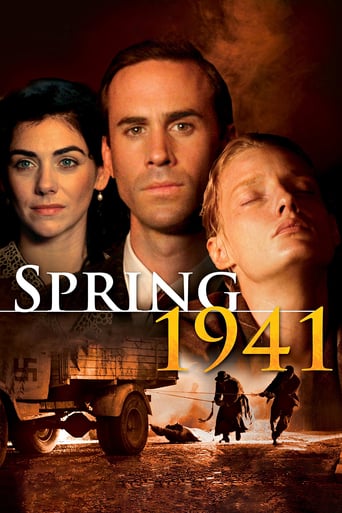

The filmmakers went to the trouble of shooting much of this movie in Poland, and maybe they benefited from something invisible in the atmosphere but there is rather little happening outdoors in the movie and I couldn't have told whether it was shot in Poland or in Poughkeepsie. Because so much of the film occurs in the small space of a peasant's hut, you could mistake it for a stage play with a few cinematic scenes tacked on. And the screenwriter, Motti Lerner, does in fact write mostly for the stage. It could be that audiences were surprised by the relative weight of the indoor part of the story, where everything depends on the interaction of the actors and their movement in a space no bigger than a stage; and by the relative weight of the interplay between the characters living in fear of the Nazis, as opposed to actual encounters with the Nazis themselves. But if you accept that the emphasis lies where it does, then you'll certainly be glad that for once Uri Barbash directed a script by an independently successful playwright rather than by his brother Benny (no offense intended). The actors do a great job of selling the story, and the script does a great job of showing a human dilemma of conflicting priorities with life and death at stake.
... View MoreThis film is a true tear jerker. The pain this family must have felt is unimaginable. As a father I couldn't begin to imagine the pain of losing both of your young children. When the youngest daughter was murdered I felt a knot in my throat. When the second daughter died I couldn't help but have a tear fall down my cheek. This family was torn apart in nearly every was possible. Such little babies ruthlessly slaughtered, what a sad part of human history. How the parents kept going after the first child was killed I can not fathom. Losing a little one to such horrific circumstances, right before your eyes and not being able to do anything about it, not even hold your child is too much to bear. I don't think I would have been able to hold back my emotions or revenge. I am fairly sure I would have died trying to get some street justice.
... View MoreRenowned composer and musician returns to Poland with her daughter for the opening of a concert hall dedicated in her honour. She in turn seeks out a country farmhouse and its owner, but is left in no doubt that she is not welcome there.Another movie told in flash-back, this follows the plight of Jewish surgeon Artur Planck, his wife Clara and their family as they seek to escape persecution in occupied Poland. Based on the life of composer Ida Fink, it paints a very bleak picture indeed, and a very complex one, emotionally.Rural Emilia is forlornly awaiting her husband's return from the front and she takes the family in, giving them shelter in her loft.Now here it begins to get a bit tricky. Emilia has long held a torch for Artur (she confesses to him that she had once visited his surgery for an examination while not actually being ill), and his presence here could be a mutually beneficial one, despite the danger in which it places her. His wife upstairs though is an inconvenience. On the pretext that Clara's "Jewish appearance" would be a liability if she were to be anywhere but up in the loft, and that Artur could pass as a local (a visiting brother?) she encourages him to do the necessary work around the farm and thus be in a position to spend more time with her. And he does, albeit reluctantly, for his wife is after all just upstairs. For her part though she has become resigned to survival, even at the cost of her marriage and so she sanctions this parlous and already tempestuous relationship. Emilia's expectations increase incrementally and she wants this new union to have legitimacy. Wartime yes, but Catholic Poland is still Catholic Poland.The final scenes are harrowing but answer the many questions which had been earlier posed.A very dark, but worthwhile film, though the "classic war movie" label is somewhat misleading. Rather, a movie set in wartime.
... View MoreThere are some very powerful and very emotionally moving moments in this movie. Certainly the deaths of Artur and Clara's two young daughters after they're shot by German soldiers are horrifying, Clare Higgins was riveting as she described Artur's final fate, and the concert at the end of the movie as she played the cello and saw in the audience the faces from her past certainly made the point that survivors of the Holocaust must be haunted by their memories and must find it difficult to move on. But on the whole this movie disappoints. Those powerful moments are somewhat scattered and so don't really hold this together or raise it to a higher level.Instead, this movie came across to me as rather muddled. It shifts back and forth repeatedly from 1971, as Clara revisits some of the places from her past, to 1941, as we're given the story of what happened to her family. The shifts are somewhat abrupt. They didn't flow very well; they weren't smooth. I also thought that the movie had an unfortunate air of melodrama to it as it traces the relationship between Artur and Emilia - the young woman in whose farmhouse the Plancks hide, and who falls in love with Artur and begins a somewhat strained relationship with him. I'm not denying that such things could have happened, but it really didn't seem to be the plot point around which a movie of this type should revolve. As an addition to the "Holocaust" collection of films, I have to say that this is not one of the stronger ones. (3/10)
... View More